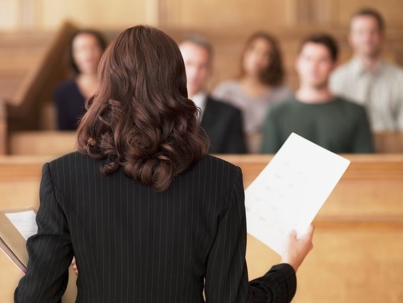Every criminal defense attorney, paralegal, staff member or investigator has heard the question. In every day life, small talk often centers around questions like “what do you do for a living?” When I respond that I am a lawyer, most people show some sort of admiration and eagerly follow up with, “what kind of law do you practice?” Responding with “criminal defense” can incite many different responses and feelings from others. Some are interested and genuinely are curious about why you went into that field, while others are taken aback at the ability that I can choose to represent “criminals” who do terrible things. Then comes the question: “how do you defend those people?” I sleep just fine, thank you. Perhaps the nights I sleep the worst are when I know that a fellow person in my community has been convicted of a crime and is going to go in the system and not come out the same.
Crime is a fascination in our society, permeating through popular culture. “The Wire,” “Law and Order: SVU,” “CSI:,” and various movies on serial killers and famous crimes are enjoyed by millions of people on a daily and weekly basis. True crime documentaries like “Making a Murderer”, “When They See Us” and “Serial” only further that fascination. They catch the worst of the worst and keep our community safe. However, many people forget that those that allegedly commit crimes are members of our community, our daughters and sons, our brothers and sisters. They are our parents, extended family, and friends. They are the people that pump your gas, sell you a car at a dealership, stitch you up after an extensive surgery. A lot of the time, people are just in the wrong place at the wrong time. Perhaps they grew up in a neighborhood where it was normalized or there were no other options. Perhaps they are criminalized for the color of their skin. As I age, it gets more difficult to watch crime shows and movies because of the typical demonization of those who commit crimes. They demonize those that have mental health issues from a combination of their biology and the environment they grew up in or from previous abuse they personally suffered. I am in no way condoning criminal behavior.
I do believe deeply in protecting the civil rights of those accused of crimes. They are innocent until proven guilty beyond a reasonable doubt. They have a right from unreasonable search and seizures. They have a right to have effective and zealous counsel, even if they cannot afford one, that will defend them until the end. I always think--what if I was in their position? What if they are innocent? Regardless, each person needs a voice. Each person deserves an advocate. The system only works with adequate, competent and dedicated attorneys on both sides or else the law itself is violated. It is out of utmost respect for my fellow neighbors and out of that same respect for the law itself that I dedicate myself to even the clients whose behavior I most disagree with.
So, when I hear that question, I remember innocent clients forced to take plea deals because of Measure 11 indictments that gave them too much risk. I remember mentally ill clients who did not deserve to be in the criminal justice system. I remember how many of my clients who were simply addicted were failed by the only possibilities the system could offer. Just like John Adams, who stood up for the soldiers at the Boston Massacre when nobody else would and found justice for those who had been over-accused by the mob, I strive to stand up for every single human being I come into contact with.

